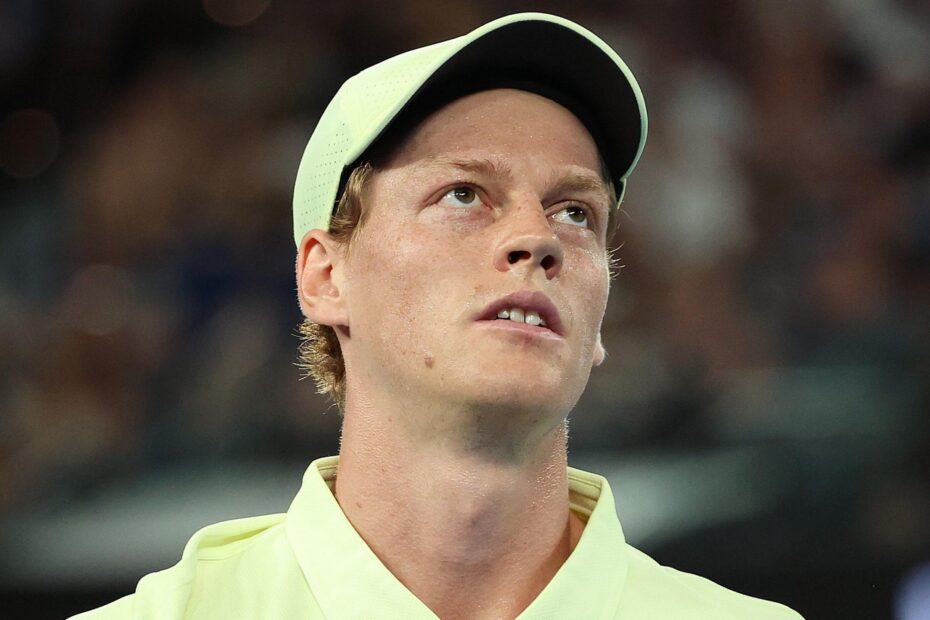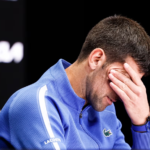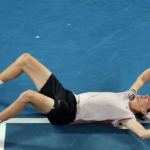Jannik Sinner, the world’s No. 1 male tennis player, has accepted a three-month ban from professional tennis after an anti-doping rule violation. The 23-year-old Australian Open champion tested positive for clostebol, a banned anabolic steroid, at Indian Wells 2025, but the World Anti-Doping Agency (WADA) ruled that he bore “no fault or negligence” in the matter.
Sinner’s suspension, which lasts until May 4, 2025, means he will miss major ATP events but return in time for the French Open.
How did Sinner get banned?
Sinner tested positive for clostebol twice in March—once during competition at Indian Wells and again eight days later in an out-of-competition test.
An independent tribunal convened by the International Tennis Integrity Agency (ITIA) ruled in August 2025 that the positive test resulted from contamination via his physiotherapist, Giacomo Naldi.
- Sinner’s trainer, Umberto Ferrara, brought an over-the-counter healing spray containing clostebol to Indian Wells.
- Naldi used the spray on his own hand after suffering a cut.
- Later, Naldi performed massages on Sinner, which led to accidental contamination.
Sinner was stripped of his Indian Wells title, including ranking points and prize money, but was allowed to continue playing.
Why Did Jannik Sinner Accept the Ban?
Though the ITIA ruled that Sinner had no intent to cheat, WADA appealed the decision in September, pushing for further action.
Rather than waiting for a Court of Arbitration for Sport (CAS) hearing in April, Sinner and his legal team reached a case resolution agreement with WADA.
In a statement, Sinner acknowledged the situation:
“This case has been hanging over me for nearly a year. I accept responsibility for my team and understand WADA’s strict rules. On that basis, I have accepted WADA’s offer of a three-month sanction.”
WADA confirmed that Sinner gained no performance-enhancing benefit and did not intentionally violate anti-doping rules. However, they also stated that under WADA’s code, an athlete is responsible for their entourage’s negligence.
Mixed Reactions from the Tennis World
Sinner’s three-month ban—which ensures he misses no Grand Slams—has drawn mixed reactions from players and analysts.
Carlos Alcaraz (World No. 2) “I respect Jannik as a player and person. I know this was not intentional, and I’m sure he’ll be back stronger.” Source
Nick Kyrgios (Former World No. 13) “Three months? This is a joke. If this was someone else, they’d be out for years. Tennis has a two-tier system.” Source
Jessica Pegula (Top WTA Player) “The WADA process doesn’t seem like a process. It’s confusing, inconsistent, and needs to be reworked.” Source
What Does This Mean for Sinner’s Season?
Sinner will miss key ATP Masters 1000 events in:
- Indian Wells (March 6-17, 2025)
- Miami Open (March 19-30, 2025)
- Monte Carlo Masters (April 6-14, 2025)
However, he will be eligible to train from April 13 and will return to competition on May 4, just in time for:
- Italian Open (May 8-19, 2025) – A major event in his home country.
- French Open (May 26 – June 9, 2025) – The second Grand Slam of the year.
ATP Calendar 2025: Key Tournaments
Is This the Right Outcome?
Many believe Sinner’s timing of the ban works in his favor, as he avoids missing any Grand Slams.
Charlie Eccleshare (Tennis Journalist):
“The common expectation was that Sinner would get a ban of this length, but many thought it would include the French Open and Wimbledon. Missing only ATP Masters events is a perfect result for him.”
Still, some tennis insiders feel the ruling is too lenient, given that other players have received harsher sanctions for similar violations.
Final Thoughts
Jannik Sinner’s three-month suspension may be a relief for his fans and career, but the debate around anti-doping regulations in tennis is far from over.
With his return set for May, all eyes will be on how he performs at Roland Garros—and whether this controversy lingers over his career.






